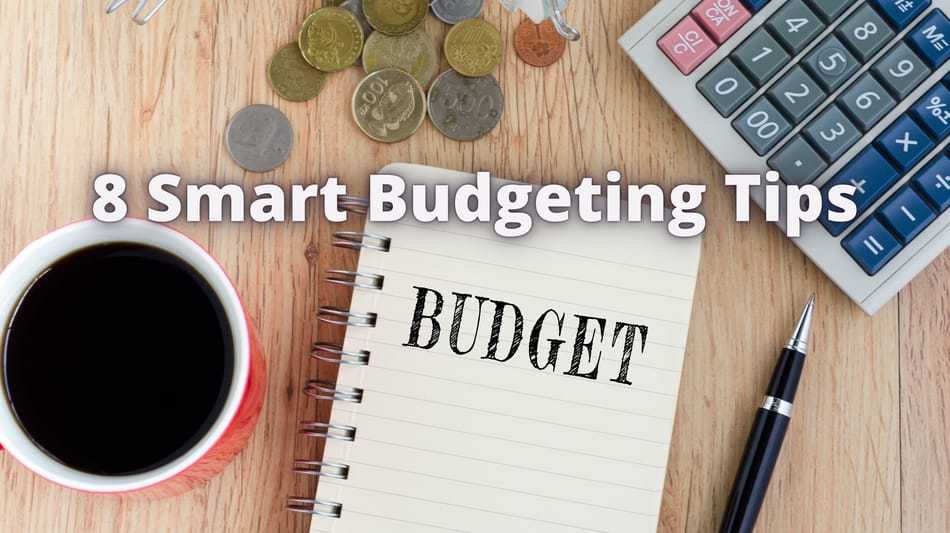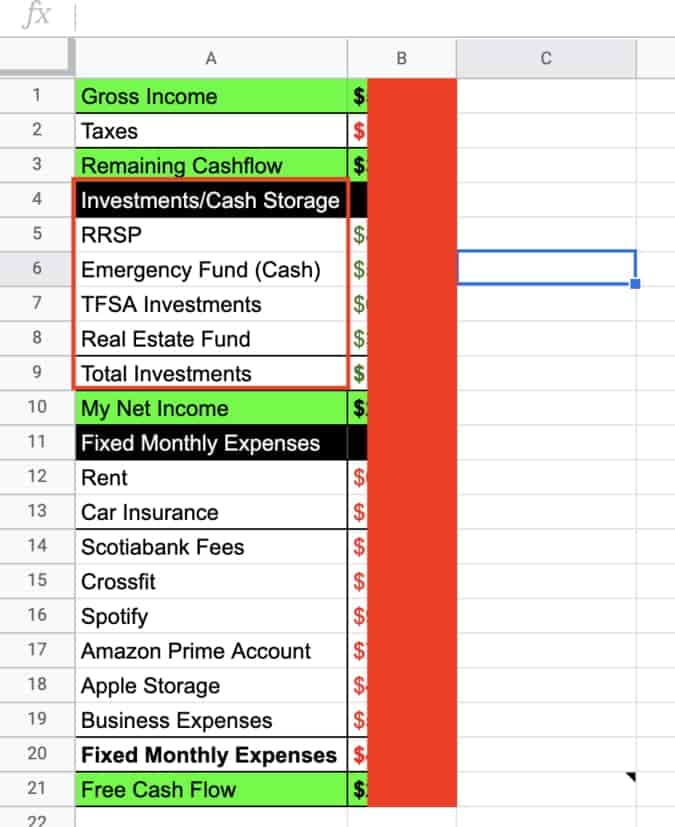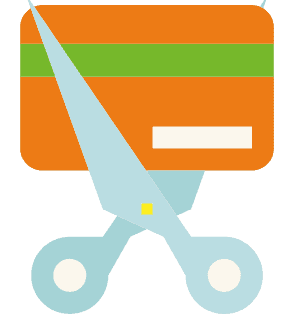
In a world where most financial transactions are conducted electronically, there is no shortage of productivity and personal finance apps to help people manage their money. However, if you’re the type of person who prefers sitting down each month to manually draw up a budget, there are a few things you should keep in mind.
Consider the following eight tips that can help you navigate the budgeting process and get the most out of your monthly income!
| 8 Really Smart Budgeting Tips |
|---|
| 1. View Budgeting from the Right Perspective |
| 2. Prioritize Expenses and Goals |
| 3. Budget to Zero Every Month |
| 4. Leave Some Room for Surprises |
| 5. Be Conscientious of How You Automate |
| 6. Understand When Needs Become Wants |
| 7. Attack Debt Aggressively |
| 8. Use Your Credit Cards Wisely |
1. View Budgeting from the Right Perspective
Budgeting is undoubtedly one of the most important actions a person can take on the path to financial freedom. However, the word budget seems to carry some negative connotations.
When we think of “budget,” we think of cheap, restrictive, and boring. As nobody likes being associated with these terms, it is only natural to avoid budgeting to reduce feelings of uneasiness.
Sticking to a budget may not be as fun as spending money like it’s going out of style, but it’s important to understand that budgeting is a sacrifice today that will allow you to enjoy many days of financial freedom in the future, as opposed to a few happy days in the short-term that will lead to a lifetime of financial stress and burden.
If it helps you out, try replacing the word “budget” with “monthly spending plan” or some other related word or phrase to make the process seem more appealing.
Hey, anything that works!
2. Prioritize Expenses and Goals
Every budget will likely consist of three broad categories:
- Expenses – these are your needs, such as food, shelter, and transportation
- Wants – these are items such as impulse buys, recreation, and entertainment
- Goals – this may include both paying down debt and saving or investing for the future
Many financial advisers recommend a 50/30/20 distribution of income towards expenses, wants and goals. However, the more you can pull from the “want” category and move it toward debts and other long term financial goals, the quicker you will attain financial freedom.

For example, if you can limit your wants each month to make a bigger house payment or save more cash, you will be able to achieve your big-picture “wants” much more quickly.
Thats just simple math. The more money you invest and save today, the more money you’ll have in the future.
3. Budget to Zero Every Month
This does not mean that you are consciously going for broke each month and spending any leftover income frivolously to get to zero.
No, a zero-based budget simply means that you give every cent of your income a name. Divide your income up meticulously and earmark it. This will help you get a firm grip on how your money is deployed and eliminate any oversights.
For example, below is a screenshot of the budget I have created for myself in Google Sheets. As you can tell, nothing fancy at all, but I give every dollar a job. And whatever I have left at the end is “free cash flow” for me to spend however I’d like – will talk more about this in the next section.

4. Leave Some Room for Surprises
Wait a second: How can you budget to zero and still leave room for surprises? The answer: Leaving room for surprises should be one of the line items as you budget down to zero each month.
In my case, I call this section “free cash flow”. But you can refer to it as whatever you want. The main point is, you want to have so money left over each for you to do whatever you want with or unexpected expenses (and that doesn’t always mean spending it!)
Understand that no matter how tightly you budget, there will always be unexpected expenses that pops up that derails your perfectly thought budget. A major car repair, a surprise doctor’s visit, or even a big-ticket splurge item are all examples of things that can throw a budget out of whack.
It’s also super important to have an emergency fund for unexpected larger expenses that you might not be able to pay for out of your free cash flow.
To learn more about emergency funds, check out my article here.
5. Be Conscientious of How You Automate
Automation is convenient and makes our lives easier in many ways. However, relying too heavily on automation can often end up being costly.
For example, you may be auto-subscribing to services that you rarely use or no longer need. In addition, your automatic monthly payments for things such as your mortgage or credit card may be shortchanging what you are capable of paying, leading to higher interest costs over time.
A good rule of thumb is to use automation as a backup so that no minimum payments are missed, but you should be actively managing all of your accounts to ensure that all payments are falling in line with your budget.
6. Understand When Needs Become Wants
Notable personal finance guru Dave Ramsey refers to our basic needs as the Four Walls:
- Food
- Utilities
- Shelter
- Transportation
While it is indisputable that you cannot skip any of these items in your monthly budget, too many people get caught in the trap of turning these basic needs into expensive wants.
Everybody needs food, but that does not mean that you have to dine at a 5-star restaurant multiple times a week.
Everybody needs shelter, but that does not mean you should take out a mortgage on a house that you simply can’t afford.
Everybody needs transportation, but that does not mean buying a Mercedes G-Wagon is a necessary purchase.
So figuring out how to balance the gray area between these needs and wants is one of the hallmarks of living within your budget.
7. Attack Debt Aggressively
There is an often-quoted phrase in the world of finance: “There are two types of people in the world: Those collecting interest, and those paying it.”
If you are burdened by heavy amounts of debt, then you are one of the many people who fall on the wrong side of this old adage.
Therefore, even if it means living scarcely for some time, it is important to pay down debt as quickly as possible. While there are many strategies for paying down debt, it is important to do so with just that: a strategy. People who throw a little bit of money each month at all of their debt accounts end up making very little headway and can seemingly be stuck in debt forever.
Some strategies for paying down debt, after making the minimum monthly payment on each outstanding account, include:
- Debt snowball – paying off your smallest account balance in its entirety before attacking the next smallest balance, creating a snowball-like effect with the momentum
- Debt avalanche – paying off your account with the highest interest rate first before attacking the account with the next highest interest rate
- Debt waterfall – paying off your highest account balance in its entirety before attacking the next largest balance.1
8. Use Your Credit Cards Wisely

Many financial gurus suggest shredding your credit cards. However, most contemporary credit now cards offer attractive rewards programs, such as travel, dining, and cashback, that actually behoove financially astute people to use them instead of paying with cash.
Now if you’ve read some of my previous articles, you’ll know I don’t use credit cards myself very often. While I do have one for things like travelling, I like the Visa Debits way more. So while I’d love to convince everybody to stop using their credit cards all together, I know that’s not going to happen.
But here’s the trick to using a credit card, only swipe for an amount that you will be able to pay off in its entirety each month. By not carrying a balance from month to month, you can avoid paying interest on your purchases and still garner all of the attractive rewards.
Related Financial Geek Article: How to Stop Spending Money Online
Final Thoughts
And there you have it folks!
While budgeting may feel like an unnecessary chore, the most financially successful people understand the importance of keeping tabs on their income and use a monthly budget to guide their financial decisions.
By considering the eight helpful budgeting tips listed above, you can fast-track your understanding of building an effective budget and make it an integral part of your journey to financial freedom.
Thanks for reading! And as always, I hope you learned a thing or two along the way.
Geek, out.






